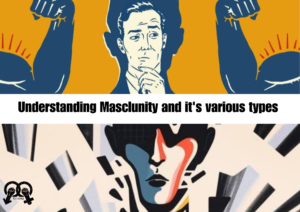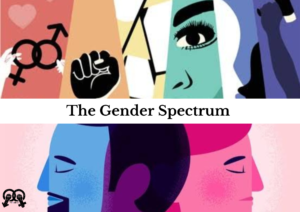In the realm of gender studies, Deniz Kandiyoti’s groundbreaking concept of the “patriarchal bargain” serves as a captivating entry point into the intricate world of women’s agency and negotiation within patriarchal societies. The core idea, introduced in her seminal paper “Bargaining with Patriarchy” in 1988, elucidates the dynamic strategies women employ to navigate oppressive systems. Kandiyoti’s work redefines traditional narratives, revealing that women are not passive victims but rather strategic decision-makers in their quest for well-being.
Defining the Bargain
The patriarchal bargain fundamentally denotes the calculated choices made by women to maximise their benefits while operating within the confines of a patriarchal structure. It acknowledges that women often encounter limited autonomy and systemic discrimination, yet they ingeniously leverage their agency to secure advantages, be they social, economic, or emotional. These bargains manifest in diverse forms – from marriage and motherhood to the adherence to traditional gender roles – depending on the specific cultural and historical context.
Women’s Choices in Patriarchal Societies
1. Marriage, Family, and Career Decisions:
In patriarchal societies, young girls are often married off at a young age, and they enter households controlled by their husbands’ fathers. This practice places them in a subordinate position to both men and senior women, such as their mother-in-law. The degree of detachment from their natal families varies based on factors like endogamy and conceptions of honour. Despite these challenges, women make strategic decisions within this framework. Some may leverage alliances with other women in the extended family to gain influence. They may also use motherhood as a source of power, ensuring their sons’ loyalty and protection.

Credits: Pinterest
2. Cultural and Societal Expectations:
Women in patriarchal societies often face cultural and societal expectations that reinforce their traditional roles. These expectations can include adhering to restrictive practices like the purdah system and veiling in South Asia. While such practices symbolize status, they also perpetuate women’s economic dependence and subordination. However, women often prioritize conforming to these expectations to maintain respectability and protection.
Economic and Social Pressures
1. Wage Gap and Workplace Discrimination:
Women in patriarchal societies frequently encounter economic pressures stemming from wage gaps and workplace discrimination. They may engage in wage labour, but the options for work are often restricted due to gendered labour-market segmentation. As a result, women may accept lower wages and uncertain employment, reinforcing their economic dependence. The withdrawal of women from non-domestic work among wealthier strata is frequently a status marker, reinforcing the wage gap and workplace discrimination. As a result, women sometimes choose to forego economically advantageous opportunities to uphold traditional gender norms.

Credits: Pinterest
2. Gender Stereotypes and Expectations:
Gender stereotypes and societal expectations further exacerbate the challenges women face. The patriarchal bargain, where women navigate the expectations of subordination, also means they may adopt strategies that maximise their security, such as manipulation of the affections of their sons and husbands. This may lead to the suppression of romantic love between younger couples, keeping the conjugal bond secondary and maintaining the sons’ primary allegiance. Women engage in subtle forms of resistance, challenging gendered stereotypes and pushing back against oppressive customs in small ways while recognising that overarching patriarchal structures often remain intact.
Therefore, women in patriarchal societies make strategic choices to negotiate the complex web of patriarchal norms, maintaining a delicate balance between tradition and personal agency in their pursuit of well-being and security. These choices are shaped by the intersections of culture, economics, and social expectations that define their experiences within the patriarchal bargain.
Patriarchal Bargain in the West
The examination of female conservatism as a response to the dismantling of classic patriarchy reveals a specific strategy within the larger framework of patriarchal bargains. This strategy is not unique to particular contexts and has parallels in Western industrialized societies. In these Western contexts, historical and contemporary analyses have demonstrated shifts in the facts and ideologies surrounding domesticity, indicating changes in patriarchal bargains.
Studies by scholars like Cott (1978), and Ehrenreich (1983) shed light on how women’s strategies and choices evolved in response to changing societal dynamics. While Cott’s analysis explores the ideology of passionlessness among Victorian women, revealing the strategic nature of their choices, Ehrenreich’s research traces the breakdown of the white middle-class patriarchal bargain in the United States. She notes that men began to opt out of the breadwinner role in the 1950s, and women’s quest for greater autonomy coincided with this shift. Despite efforts to uphold the traditional male breadwinner and female homemaker roles, alternative trends challenging the dominant normative order emerged.

Credits: RedStockings Group
Ehrenreich’s assessment suggests that women either sought greater equality in income and opportunities or aimed to reinforce men’s commitment to the traditional family structure. In this context, the antifeminist movement can be viewed as an attempt to reinstate an older patriarchal bargain.
On the other hand, Ginsburg (1984) examines antiabortion activism among U.S. women as a strategic response rather than purely reactionary. She underscores that disentangling sexuality from reproduction and domesticity is seen by many women as detrimental to their interests, as it diminishes societal pressure on men to take responsibility for reproductive consequences. This reflects the multifaceted and sometimes contradictory nature of women’s responses to evolving gender dynamics in contemporary society.
Conclusion
In a comprehensive examination of women’s strategies and adaptive measures within patriarchal systems, we gain a nuanced understanding of these systems in their cultural, class-specific, and temporal contexts. This analysis reveals how men and women engage in a complex interplay of resistance, accommodation, adaptation, and conflict concerning resources, rights, and responsibilities. Women’s strategies operate within discernible patriarchal bargains, which serve as implicit scripts, defining and shaping their choices both in the market and domestic spheres. According to Deniz Kandiyoti, a refined focus on these distinct patriarchal bargains, rather than embracing an unqualified notion of patriarchy, offers a more promising avenue for in-depth investigations into processes of transformation within societies. It is through such meticulous scrutiny that we unravel the intricacies of gender dynamics and women’s agency in the face of patriarchal structures, shedding light on how they navigate and negotiate within the constraints of these prevailing systems.
References
Kandiyoti, Deniz. “Bargaining with Patriarchy.” Gender and Society 2, no. 3 (1988): 274–90. http://www.jstor.org/stable/190357.
Hossain, Naomi. “The Breaking of the Patriarchal Bargain and the Emergence of the ‘Woman Issue.’” The Aid Lab, (2017): 75–90. https://doi.org/10.1093/acprof:oso/9780198785507.003.0004 .
Cott, Nancy F. “Passionlessness: An Interpretation of Victorian Sexual Ideology, 1790-1850.” Signs 4, no. 2 (1978): 219–36. http://www.jstor.org/stable/3173022
Ehrenreich, Barbara. The Hearts of Men: American Dreams and the Flight from Commitment. Garden City, N.Y.:Anchor Press/Doubleday, (1983).
Ginsburg, Faye. “The Body Politic: The Defense of Sexual Restriction by AntiAbortion Activists.” Pleasure and Danger: Exploring Female Sexuality, London: Routledge, (1984): 173-88
Authorship Credits
Paarth Pande is a liberal arts graduate from Symbiosis University Pune and a Research Intern at Mandonna





